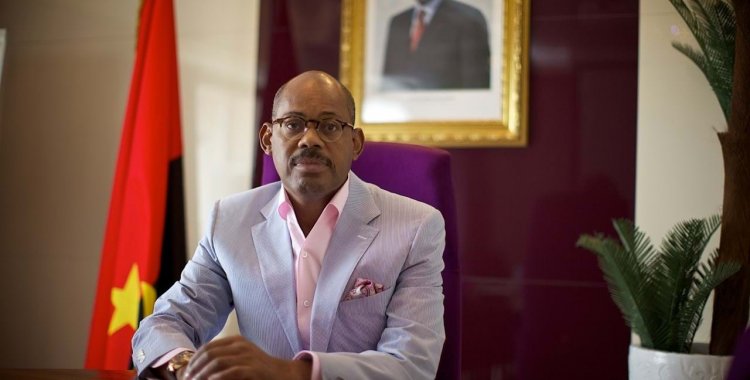According to the newspaper, which dedicates a page of its print edition to the news, with the headline 'A leaf found in Lisbon in 2014 is key evidence of bribes to Angola', Spanish justice has concluded that the former deputy trade minister Manuel da Cruz Neto, the then national director of Trade Gomes Cardoso and former economic advisor to José Eduardo dos Santos and future finance minister Augusto Archer Mangueira, received bribes to allow the construction of a supply market.
In total, these three men are said to have received $450,000, of which $200,000 for the first, $100,000 for the second, and $150,000 for the third, in a case that was found almost by chance, since it resulted from searches made by Portuguese and Spanish authorities at a house in Linda-a-Velha, on the outskirts of Lisbon, seven years ago, in another investigation involving the same person.
At the time, they were looking for Luso-Angolan citizen Guilherme Taveira Pinto, who is believed to be in Luanda, according to El Mundo, which tells the story of how in that search of the house many documents were found, but of no use to the original case.
"Not everything was in vain, however, in the register of the house many documents were found that went to Madrid to be examined calmly," reads the newspaper of this Monday, which adds: "Among these documents was a sheet with numbers and loose letters, which seven years later and 14 years after it was written, is a key evidence in the prosecution of the tax authorities in another case of corruption, and shows that Spain bribed important officials of the Government of Angola.
At stake is the case that Spanish authorities are preparing, and under which they want to bring to trial 20 people and eight companies, including the public company Mercasa, for irregularities detected between 2006 and 2016 for the construction of a supply market in Angola's capital, Luanda, as Lusa reported in late 2019.
According to the National Hearing, a special court that deals with the most serious corruption cases, commissions were paid to Angolan authorities and officials to obtain the contract, and the defendants also kept a portion of the funds, which amounted to nearly 20 million euros.
The judge in charge of investigating the case then highlighted the most "absolute contempt for the law" on the part of the companies investigated and, above all, the public company Mercasa, which lacked "the most elementary legal and ethical norms", driven by a policy of "profit at any price", in an attitude that is "absolutely unbearable" for a company of a public nature.
The report released in November, which closes the investigation phase of the case and proposes the trial of the defendants, considers the role played by the person responsible for the distribution of commissions, the Portuguese-Angolan fugitive Guilherme Oliveira Taveira Pinto, who carried out work for Mercasa and for Defex, another public company involved, to be key.
Taveira Pinto, who is suspected to live in Luanda, was the initial recipient of the commissions and distributed them among public officials and business officials.
The judge highlights the practice of crimes of corruption in an international economic transaction, misappropriation of capital, falsification of documents, illicit association or criminal organization and money laundering.
Mercasa, considered the largest network of wholesale markets in the world and controlled by the Sociedad Estatal de Participaciones Industriales (SEPI), has 23 logistics platforms in Spain, in which 3000 wholesale companies in the agrifood sector work.
The Spanish Justice has already issued several European and international arrest warrants against Guilherme Oliveira Taveira Pinto for his involvement in other corruption cases, namely involving Defex.
In this Monday's edition, El Mundo points out that "the value of the contract signed with the Government of Angola marked a price of 218 million dollars, 15 percent of which, 32 million, should refer to a first advance payment to start the project.
Angola, the article says, "religiously paid this amount to the Mercasa consortium and private companies, and this consortium paid Taveira Pinto the amount of 3.1 million dollars, which implies 9.5 percent of the 32 million, and in theory should be 1.5 percent for Taveira Pinto himself as contract commission and 8 percent for 'commercial expenses'," which was exactly the amount described in the sheet found in the home of this Luso-Angolan businessman, in Linda-a-Velha.
"The file accounts match the 8 percent of the 32 million that Angola paid, but the investigators make it clear that of 'commercial expenses' they have nothing," the article concludes.







